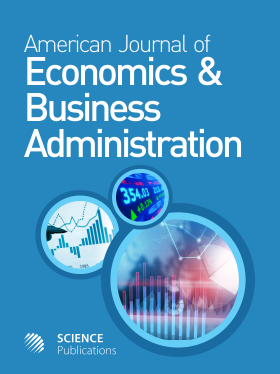Development of the Municipal Employee’s Performance Efficiency and Effectiveness Indicators on the Basis of Functional and Process Approaches
- 1 Moscow State University of Instrument Engineering and Informatics, Russia
- 2 Moscow Institute of Public Administration and Law, Russia
Abstract
One of the most difficult problems in evaluation of performance effectiveness of municipal employees is developing a list of relevant criteria and indicators. The purpose of this article is to develop schematic scientifically grounded criteria to evaluate the effectiveness of the professional performance of municipal employees. The article considers the model for the development of a system of performance efficiency and effectiveness of municipal employees, which is a combination of functional and process approaches in pace rating of municipal employees. Analysis of performance efficiency and effectiveness evaluation practice of municipal employees shows that there is no consistent approach in formation of the evaluation system. Nevertheless, we should note the common pattern, which is as follows: The techniques that involve the use of aggregate quantitative, qualitative and temporal indicators of managerial work are more frequently used in various evaluation practices. After analyzing the technologies and approaches, proposed by various authors with regard to formation of the performance efficiency and effectiveness system of municipal employees, the author of current article highlights the main features serving the basis for performance indicators; these are the number of completed scheduled and unscheduled works, the quality of accomplished assignments and compliance with deadlines. Performance indicators of the municipal employees include management efficiency indicators that characterize the ratio of management results and used resources, as well as effectiveness indicators, showing the success in achieving the goals. Presented functional-process model, which includes quantitative, qualitative and temporal indicators, can be applied at various stages of the municipal service carrier, whereas the results obtained can be taken into account when making personnel decisions in the municipal authorities.
DOI: https://doi.org/10.3844/ajebasp.2014.133.137

- 3,623 Views
- 2,121 Downloads
- 1 Citations
Download
Keywords
- Functional-Process Model
- Functional Approach
- Process Approach
- Municipal Service
